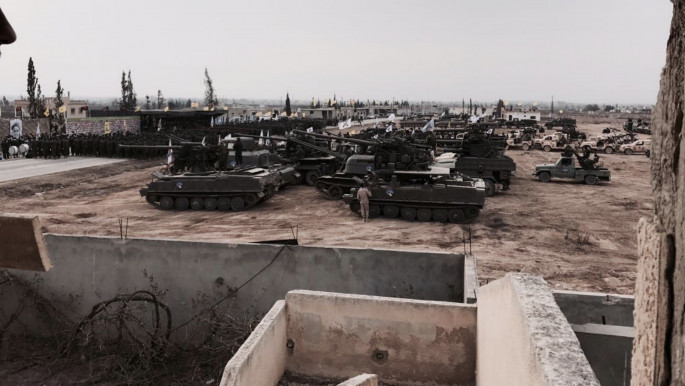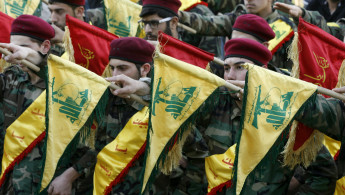After military parade, Hizballah says it's now an army
Lebanese militant group Hizballah say they are no longer a guerrilla movement and now a military force, after images emerged of the movement staging a military parade in Syria, where it is fighting to bolster the Assad regime.
The images shared widely on social media provoked controversy in Lebanon - where the Shia movement is a divisive force - as well as concern from Washington, which deems Hizballah a "terrorist" group.
"We now have a trained army and the Resistance (Hizballah) does not need to rely on guerilla tactics," Hizballah's second-in-command Sheikh Naim Qassem told Lebanese daily al-Safir on Wednesday.
Hizballah's media department has disputed that quote, insisting Qassem had actually said: "We have become more than a guerilla movement but less than an army."
"We are better equipped, better trained and we have become highly experienced to defend Lebanon and its best interests," Qassem also was quoted as saying in the newspaper.
He confirmed that Hizballah had held the military parade in the Syrian town of Qusayr, near the Lebanese border, calling the procession a "clear message to everyone, which needs no explanation".
 |
|
| The parade included a display of Soviet-made T72 tanks and Russian-made anti-tank missiles [Twitter] |
Hizballah retook the town from Syrian rebels in 2013. It was its first major victory after it intervened in the Syrian conflict in support of President Bashar al-Assad's regime earlier that year.
"We are in Syria and we do not need to explain or justify ourselves. We are standing beside the Syrian army and state and if we had not interfered terrorists would be everywhere in Lebanon now," Qassem said.
Hizballah, which is an keen ally of Syria's Bashar al-Assad sent thousands of fighters to back government forces involved in the conflict.
Hizballah's militia never disarmed after Lebanon's devastating 1975-90 civil war and is the country's most powerful armed force.
Detractors accuse it of being a "state within a state".
Washington has designated it a "terrorist" group since 1995, accusing it of a long list of attacks including the bombing of the US Embassy and Marine barracks in Lebanon in 1983.





 Follow the Middle East's top stories in English at The New Arab on Google News
Follow the Middle East's top stories in English at The New Arab on Google News
![The UAE is widely suspected of arming the RSF militia [Getty]](/sites/default/files/styles/image_330x185/public/2024-11/GettyImages-472529908.jpg?h=69f2b9d0&itok=Yauw3YTG)
![Netanyahu furiously denounced the ICC [Getty]](/sites/default/files/styles/image_330x185/public/2024-11/GettyImages-2169352575.jpg?h=199d8c1f&itok=-vRiruf5)
![Both Hamas and the Palestinian Authority welcomed the ICC arrest warrants [Getty]](/sites/default/files/styles/image_330x185/public/2024-11/GettyImages-2178351173.jpg?h=199d8c1f&itok=TV858iVg)